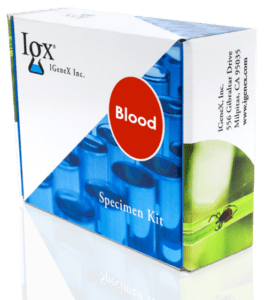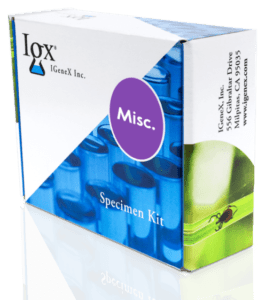Chronic fatigue is a broad term that can refer to a range of medical conditions, from Chronic Fatigue Syndrome to symptoms of other conditions. In fact, fatigue is a common symptom of Lyme disease and especially chronic Lyme disease. So, if you’re experiencing chronic fatigue, how do you know what the cause is? Keep reading to learn more about Chronic Fatigue Syndrome, fatigue as a symptom of other conditions, and important facts about chronic fatigue and Lyme.
What is chronic fatigue?
Chronic fatigue is often used as a shorthand to refer to Chronic Fatigue Syndrome, or myalgic encephalomyelitis (ME). Some care providers have also proposed the term systemic exertional intolerance disease, or SEID. This article will use the term Chronic Fatigue Syndrome (CFS) to refer to this specific medical diagnosis and “chronic fatigue” to refer to chronic symptoms of fatigue that are exacerbated or caused by unknown/other conditions.
CFS is a serious, long-term illness that affects several body systems and currently has no cure. According to the Centers for Disease Control and Prevention (CDC), CFS affects approximately 836,000 to 2.5 million Americans – but notably, most have not been diagnosed. More women than men are diagnosed with CFS, and the majority of cases are in young and middle-aged adults.
The Mayo Clinic defines ME/CFS as “extreme fatigue that lasts for at least six months and that can’t be fully explained by an underlying medical condition.” According to this definition, fatigue symptoms worsen with physical or mental activity, but do not improve with rest.
Those with ME/CFS often complain of:
- Sleep that isn’t restful
- Problems with memory, focus and concentration
- Dizziness when getting up from sitting or lying down
What causes Chronic Fatigue Syndrome?
Like with many chronic illnesses, the causes of CFS are mostly unknown. Experts have proposed that it can be caused by a combination of factors, such as viral infection (e.g., Epstein-Barr, herpes 6), bacterial infection, hormones, immune system problems, and stress or other psychological triggers.
Diagnosing Chronic Fatigue Syndrome
There is no single test for diagnosing CFS. Care providers usually must consider many diagnostic factors and the results of several tests to rule out other conditions, such as:
- Sleep disorders (sleep apnea, restless leg syndrome, insomnia)
- Medical conditions like anemia, diabetes, hypothyroidism, IBS
- Mood disorders and other mental health problems, e.g. depression and anxiety
Making matters more complicated, many of the above conditions tend to be comorbid with CFS. That is, they exist simultaneously and have a synergistic effect (i.e., causing symptoms that are greater than/worse than symptoms of each condition alone).
To be diagnosed with CFS, symptoms must last for 6 months, be of new onset, and not be alleviated by rest.
Treatment
As mentioned above, there is no one cure for CFS. Instead, treatment focuses on symptoms. These often mimic or include treatments for common mental health problems, such as the use of antidepressants and counseling/therapy, addressing sleep problems, and low intensity exercise.
Symptoms
Among the many factors that make it difficult to diagnose CFS is the fact that symptoms can vary widely from person to person. This is one major similarity between chronic fatigue and Lyme, which are often misdiagnosed. It’s not a coincidence that chronic fatigue and Lyme share many of the same symptoms.
Beyond fatigue, signs and symptoms of CFS may include the items on the list below. Symptoms that can be caused by both chronic fatigue and Lyme are marked with an asterisk.
- Problems with memory or concentration*
- Sore throat
- Headaches*
- Enlarged lymph nodes in your neck or armpits*
- Unexplained muscle or joint pain*
- Dizziness that worsens with moving from lying down or sitting to standing*
- Unrefreshing sleep
- Extreme exhaustion after physical or mental exercise. *Post-exertional malaise: People who experience post-exertional malaise often struggle to find a good balance between activity and rest. The goal is to remain active without overdoing it.”
The consequences of Chronic Fatigue Syndrome for patients can be dire, and very similar to those for patients living with chronic Lyme disease. Those with CFS report lifestyle restrictions, work problems including increased work absences, depression and worsening mental health, and social isolation.
Fatigue as a Symptom of Other Conditions
As mentioned, chronic fatigue can be a symptom of a vast range of other illnesses, including Fibromyalgia and Lyme disease.
Chronic fatigue and Lyme Disease
Fatigue is one of the most common symptoms reported with Lyme disease. While it can show up at any stage, it is frequently a symptom of chronic Lyme, a controversial diagnosis that does not have support from many in the medical community. Because of this bias, many patients with Lyme disease are misdiagnosed with CFS, leading to a worsening of Lyme symptoms because the underlying infection has not been addressed.
The reverse is also possible – you can be misdiagnosed with Lyme if you really have CFS. However, this is rare if you are using a high-quality, high-sensitivity blood test from a reputable lab. If you’re experiencing chronic fatigue symptoms and think you may have been exposed to Lyme or other bacterial infections through a tick bite, it is crucial that you see a doctor and get tested.
Discuss misdiagnosis here. Focus on CFS as a misdiagnosis of Lyme, but mention Lyme as a misdiagnosis of CFS. Just frame it as it’s important to get a quality blood test from a reputable lab in order to confirm your Lyme diagnosis.

Accurate Diagnosis is Key
If your chronic fatigue symptoms are caused by Lyme disease or another tick-borne illness, it is crucial that you get the right diagnosis. The bacterial infection requires its own treatment – including antibiotics and often other treatments, depending on the severity or length of illness – and will not be addressed through treating the fatigue alone. Learn more about the testing for Lyme disease and other tick-borne diseases with IGeneX today.








